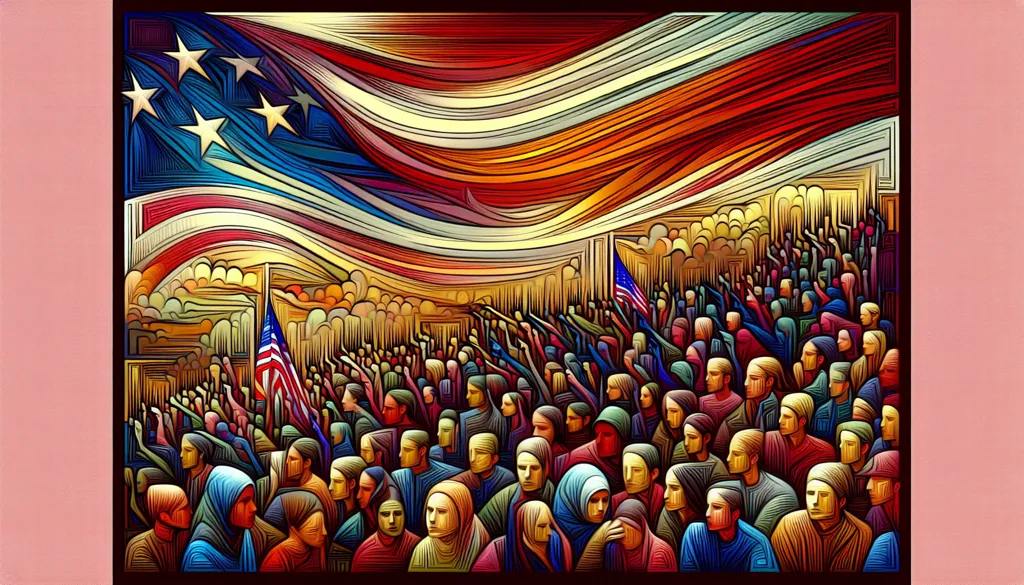Analyzing Trump's Bold Cabinet Picks and Immigration Proposals
In recent weeks, President-elect Donald Trump has been making headlines with his controversial cabinet selections and ambitious immigration policies. As he prepares to assume office once again, his choices and plans reflect a commitment to upend traditional government practices and address pressing issues such as immigration. From appointing hardliners like Tom Homan as border czar and Stephen Miller as deputy chief of staff to outlining aggressive deportation strategies, Trump's approach has sparked significant debate and concern across the nation.
Trump's Controversial Cabinet Picks
Trump's latest round of cabinet nominations has drawn considerable attention, not just for the individuals chosen but for the controversies surrounding them. Matt Gaetz, nominated for attorney general, faces unresolved allegations of misconduct, while Pete Hegseth, Trump's pick for defense secretary, is embroiled in past accusations of sexual assault. These selections underscore a pattern of bold, and sometimes polarizing, appointments that signal Trump's intent to challenge the status quo in Washington.
Additionally, Trump's choice for director of national intelligence, Tulsi Gabbard, has raised eyebrows due to her past comments perceived as sympathetic to Russia. Despite these controversies, Trump seems determined to push forward, banking on the support of Republican majorities in Congress to secure confirmations.
Immigration Policy: An Aggressive Stance
Immigration remains a central theme in Trump's political agenda. His promise to launch the "largest deportation program in American history" reflects a commitment to delivering on his campaign promises. By nominating Tom Homan as border czar and Stephen Miller as deputy chief of staff, Trump signals a readiness to implement hardline immigration policies.
The proposed measures include utilizing military resources to expedite deportations and invoking the Alien Enemies Act of 1798, a controversial move that could face significant legal challenges. While Trump claims that these actions are necessary for national security, critics warn of the potential economic and humanitarian impacts, including labor shortages and increased inflation.
Economic and Social Implications
Trump's immigration policies are not without their economic implications. Economists have expressed concerns that mass deportations could disrupt labor markets, leading to job losses for both immigrants and U.S.-born workers. The American Immigration Council estimates that such actions could reduce the U.S. GDP by 4.2% to 6.8%, highlighting the potential for economic harm.
Moreover, the social fabric of American communities could be strained as families face separation and uncertainty. The logistical challenges of deporting millions, coupled with the potential backlash from immigrant rights groups, suggest that Trump's proposals will not proceed unchallenged.
Political and Legal Challenges Ahead
Beyond the immediate economic and social concerns, Trump's plans face formidable political and legal obstacles. While the Republican majority in Congress could facilitate the approval of his cabinet picks, the broader implementation of his immigration agenda will likely encounter resistance from state governments, legal experts, and civil rights organizations.
As Trump prepares to take office, the nation watches closely to see how these dynamics will unfold. Will he succeed in pushing through his ambitious agenda, or will legal and public opposition temper his plans? Only time will tell.
Conclusion
As a moderate Midwestern mother observing these developments, I can't help but feel a mix of concern and curiosity. Trump's bold approach to governance and immigration speaks to a desire for change, but the path forward is fraught with challenges. Balancing national security, economic stability, and human rights will be crucial as the new administration takes shape. In the heartland, where community ties and pragmatic solutions reign, we hope for policies that reflect both strength and compassion.

